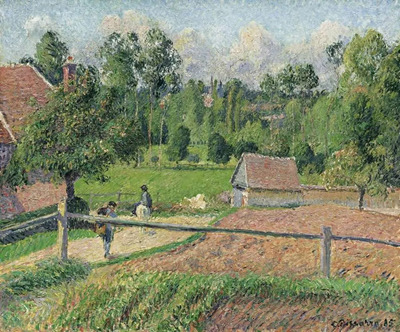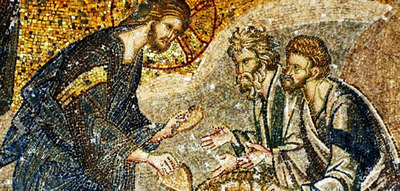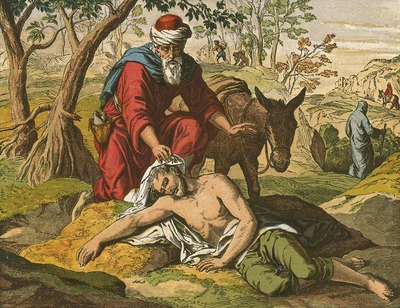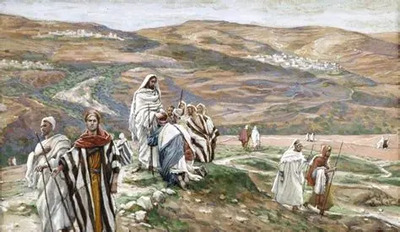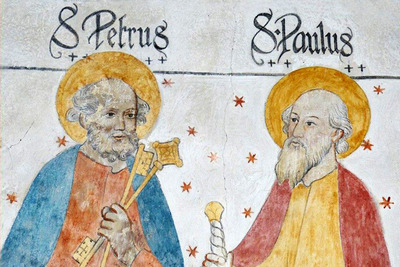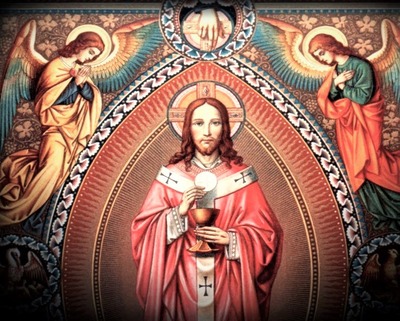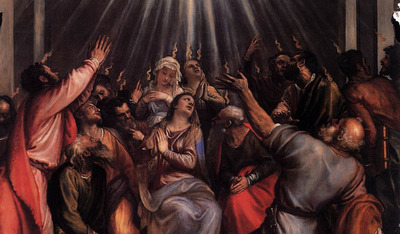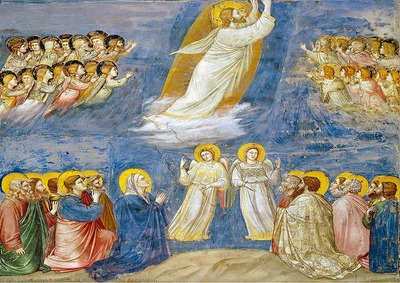July 27, 2025
|by N W
|
0 Comments
|
Blessings, Charity, Generosity, Guest Celebrants, Holy Spirit, Prayer
Seventeenth Sunday in Ordinary Time
July 27, 2025 — Year C
Readings: Gn 18:20-32 / Ps 138 / Col 2:12-14 / Lk 11:1-13
by Rev. Augustine Temu, Guest Celebrant
My name is Augustine Temu. I am a Roman Catholic priest, originally from the Roman Catholic diocese of Tanga. Tanga is in Tanzania. Tanzania is in east Africa. If you don’t know it, just remember the second highest mountain in the world is Mount Kilimanjaro, which is in my country. The second deepest lake in the world, being four miles deep, Lake Tanganyika, is in my country. The most precious gem is only found in my country, and it is called tanzanite. Currently I am a priest at St. Mary Magdalene parish in the diocese of Pittsburgh, and I work for Cross Catholic Outreach as an outreach priest.
Let us focus on two things that make us come to church every weekend. First and foremost, to listen to the Word of God, and secondly to receive Jesus Himself in the Holy Eucharist.
Today I’d like you to think about the contrast between egg and fish, serpent (or snake) and scorpion. Fish, egg, serpent, and scorpion. Jesus uses contrasting symbolism to teach about God’s goodness in answering prayer. Fish and egg represent nourishment, life, and good gifts. Serpent and scorpion represent harm, deceit, and destruction, often associated with evil. This gospel passage reassures us that God gives what is truly good, not harmful or deceitful. God knows our very needs, not just our wants. There’s a difference between a need and a want. Sometimes we want things, but God gives what we need, not what we want.
The Holy Spirit is God’s greatest gift, the source of truth, guidance, peace, and strength. In the last two sentences of the gospel today, Jesus says that the Father will give the Holy Spirit. This is the best gift we can desire because it is the source of truth, guidance, peace, and strength.
Secondly, we ask God for fish but receive a scorpion: This is a deep spiritual struggle many of us face when prayers seem unanswered and the result is suffering. We ask God sometimes for a job, health, for peace, and instead we face rejection, illness, or conflict. It may feel like we asked for a fish and we received a scorpion. But God sees differently. What seems like a scorpion may turn out to be a path to deeper transformation, humility, or grace. You can read an example in the Second Letter of St. Paul to the Corinthians (2 Cor 12:7-10), when Paul prayed three times to be freed from his thorn in the flesh, but God said, “My grace is sufficient for you.” Paul asked for relief, or in other words, a fish, and he received endurance and grace, not a scorpion but something greater.
Thirdly, fish, scorpion, and the modern materialistic world: In today’s world, driven by consumerism, greed, and superficial desires, this teaching challenges us in several ways. People often pursue material things, thinking they will be satisfied. Fish becomes money, fame, power, and so on. But sometimes what people get is a serpent, addiction, anxiety, emptiness. In a materialistic culture, even parents and leaders may unknowingly give scorpions, such as overindulgence, pressure to succeed without ethics, replacing love with gadgets. Like God, let us give what nourishes the soul—time, truth, love and virtue, not just material things.
Fourthly, beware of the serpent in disguise: Many things today look attractive, such as wealth, status, and popularity, but carry hidden dangers. The serpent today whispers through the following: consumerism, which means “Buy this and you will be happy.” Secondly, ego, which means “Be better than others” and that brings pride inside—that I feel I am better off than others. Thirdly, compromise is another way whereby the serpent whispers through. And what is compromise? “Everybody does it,” “It is normal,” “So don’t worry, do it.” Be watchful. What seems like wisdom is often a clever lie that separates us from God.
Fifthly, the scorpion has hidden poison: Scorpions have a sting that is concealed until they strike. They represent harm hidden under the surface. Today, many things appear harmless or beneficial but cause spiritual damage. For example, addictive entertainment, pornography, violent media. Toxic relationships disguised as love. Overuse of social media breeds anxiety and comparison. Satan disguises himself as an angel of light. (2 Cor 11:14) What glitters may not be gold; it may be a scorpion in disguise.
Sixthly, materialism is a beautiful serpent: The world says, own more, show more. But Jesus says, “What does it profit a man if he gains the whole world but loses his soul?” (Mk 8:35) I should make it very clear, I don’t say wealth is bad, riches are bad. No, it is good. I’d like everybody to be rich and have wealth. But if you have wealth and you aren’t compassionate, sensitive, kind, merciful, supportive, sharing that blessing with others, it’s a scorpion. If it is used for selfishness, individualism, self-centeredness and you don’t become aware of the needs of others, especially those who are less fortunate, it’s a serpent. But if you have wealth and riches, be they intellectual, emotional, economical, (“riches” doesn’t necessarily mean money, even if you have talent, that’s riches) and you share them with others, becoming compassionate, merciful, kind, volunteering, that an egg, that’s a fish, that’s good. Materialism often disguises itself as security or progress, but it can choke the soul, the thorns that choke the Word. (Lk 8:14) Not every egg is safe. Be rooted in prayer, scripture, sacraments, and the community.
Today I have come to you to ask for your support. Cross Catholic Outreach is dealing with helping the poorest of the poor in different countries, especially in the developing countries. Those who are hungry, those who are thirsty, those who are homeless, those who are naked, to empower them, to share our blessings with them. And today I have come to you to ask for your generosity, to ask for your sensitivity, to ask for your sharing, that whatever you can to help these people. These are people in different countries, in Asia, in Africa, South America, Central America, and in the Caribbean. And you can learn more information from our website (https://crosscatholic.org/).
If you donate $50 you can provide 333 meals for hungry children; $92 can deliver a lifetime of safe drinking water to a family of four; $250 can help to provide lifesaving medical care for infants in impoverished communities; $500 can help sponsor a self-help project allowing families to break the cycle of poverty, $1,500 can help to start building a house.
These are very minimal when we compare our lives in America with those developing countries. We are very blessed, but sometimes we take things for granted. For example, in my country, which is similar to other African countries, babies die and suffer from water borne diseases, such as E. coli, cholera, typhoon fever, bilharzia, hepatitis A and B. Women and girls fight and scramble for water, people walk long distances, almost four to five miles away for water, while in America I don’t see babies and children dying and suffering from water borne diseases.
I ask you today, and I know you want to give an egg, you want to give a fish to these people in these different countries. Whatever way you’d like to be sensitive, to be compassionate, to be kind. This is a standalone, nonprofit organization, 501 (3)(c) by the IRS, and therefore you can claim this on your taxes at the end of the year.
And last but not least, it is not the money you give, but the happiness, the joy, the transformation, the egg, the fish you will have given to these people in those developing countries. And on top of that, at the final day of judgement, when you die and you meet with that gentleman, Jesus, He will tell you, “Now enter in the home of my Father,” and you will ask Jesus, “Why are you welcoming me so joyfully into your Kingdom?” He will tell you, “Whatsoever you did to the people of Africa, that you did unto Me. When I was hungry you gave me to eat, when I was thirsty, you gave me to drink.”
KEEP READING
 540-586-8988
540-586-8988 

